In 2024, a small space heater sparked a fire that would set Maritza Dávila-Irizarry’s backyard studio ablaze. Her printing press, her tools, her collection of art books, and several artworks, both her own and those she collected — all amassed over her decades-long career — were damaged or destroyed entirely; the studio itself had to be brought to the foundation. “Between the fire and the fire department, everything was either burned or wet, or both,” she says.
Yet, amid the ruin, the printmaker found salvageable pieces, in drawers and stacks, covered by glassine, a smooth and glossy paper, resistant to the elements, it turned out. Edges were smoked on some pieces; water warped the papers’ surface on others. Neighbors, friends, colleagues, family, all picked through the rubble the next day. They donated to a GoFundMe. They helped Dávila and her husband, Jon Sparks, a Flyer writer, move what they could save into their home and later, when the lingering smoke in their home got too much for her asthma, into a Pod.
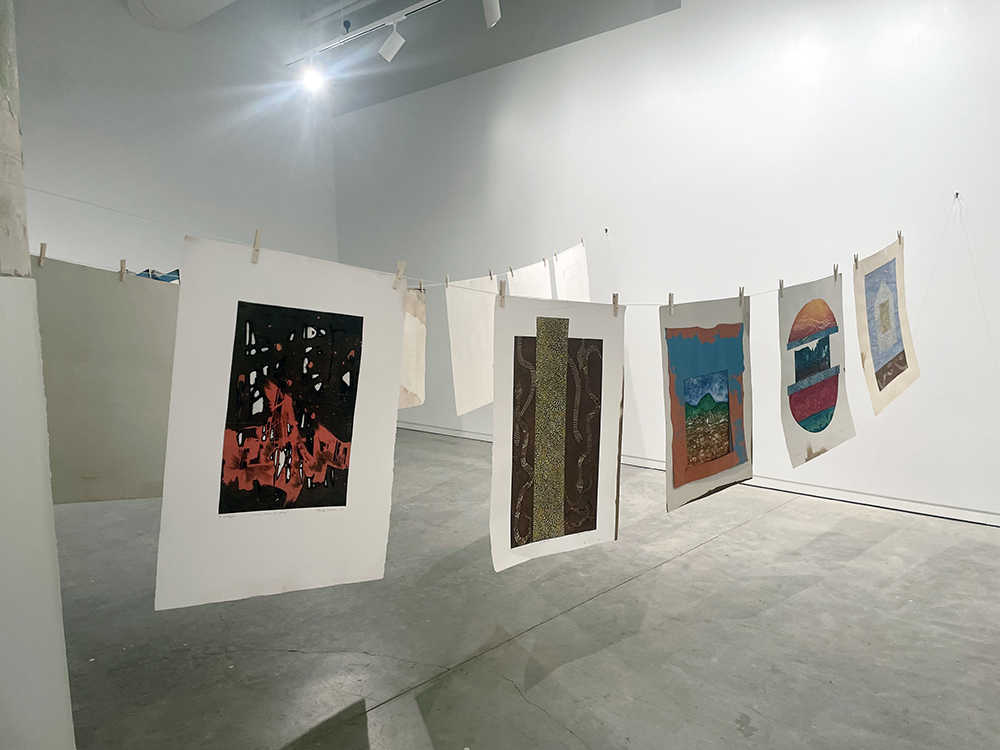
“One of the ladies helping me, a neighbor, told me, ‘I wanna buy a burned print,’” Dávila says of that first day. “I said, ‘Yeah, go ahead.’”
It wasn’t an act of pity for her loss, the artist knew. The woman even rushed to have it framed the next day. “It has become another piece,” Dávila says. “It’s survival, but it has become unique. So I’m willing to take it. It’s perfectly all right for me. It shows experience.”
And that’s the mindset she’s taken for her show at Crosstown Arts, “From the Ashes,” on display through May 11th. “It’s work that survived the fire and work that was inspired by the fire and the surviving nature in me. I’m a survivor. …
“It’s not the first time that I have been in a very tight spot, and my reactions have been focused: What is your goal? Let’s make it happen. … And being a teacher, that’s the kind of approach I make to the students. When they are feeling low, I say, ‘Okay, let’s look at this. What if we do this and this with this?’ — thinking about what we have in front of us.”
She encourages her students — and viewers — to embrace the inescapable realities, to work with, not against, them. Her work itself explores those inescapable and “inseparable” qualities of ancestry “that through blood and culture and beyond our ability to control help make us who we are. And while we may not be able to consent to the qualities of the past that have shaped us, we do exercise choice in how we regard our essential selves.”
One of these pieces calls back to Dávila’s own ancestry — Don Moncho portfolio, a collection of screen prints, now with smoke markings, made in honor of the artist’s father. “My mother taught me about being a strong woman,” she says, “but my father taught me about discipline, being committed to being a creative person.”
Her father was a teacher, like her, and a musician. The prints contain photographs of him with his guitar, typed-up poems he wrote, a slip of his handwriting, and sheets of music — each element telling a facet of his story. Now, though, the edges of the prints are marked with smoke, his daughter’s own story coming into view.
These water- and smoke-marks carry throughout the show that inescapable reality Dávila has recognized as “just change” — a new visual element to take in. Some pieces hang on a clothesline in the gallery, a nod to when those pieces hung to dry in the aftermath of the fire. An unused printing plate is on display, burned so badly it never had a chance to print, while a stack of burned books sits in the back to remind viewers of what was lost. “I lost hundreds of books and I was so proud of my library,” she says, noting that she’d lend out art books to whoever asked.
And the studio, she says, was another place for community. “I like to share my space and whatever I have with others. I’m a great believer that people carry their energy into places, and that when you have people in your place, that’s good energy.”
Dávila’s space has since been rebuilt. It’s better than before, with higher ceilings and better ventilation, but she still hasn’t replaced all her tools and supplies. Yet she says, “I’m very blessed by all the support from the community, my friends, my family. … And [‘From the Ashes’ is] almost a thank you for the hundreds of people that showed up at my door.”
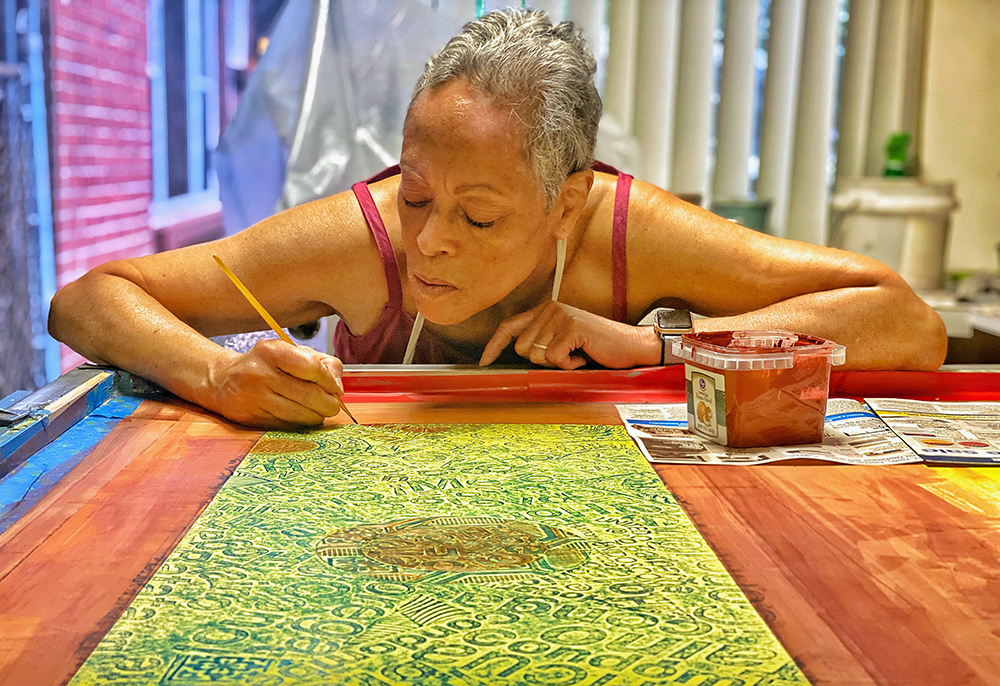

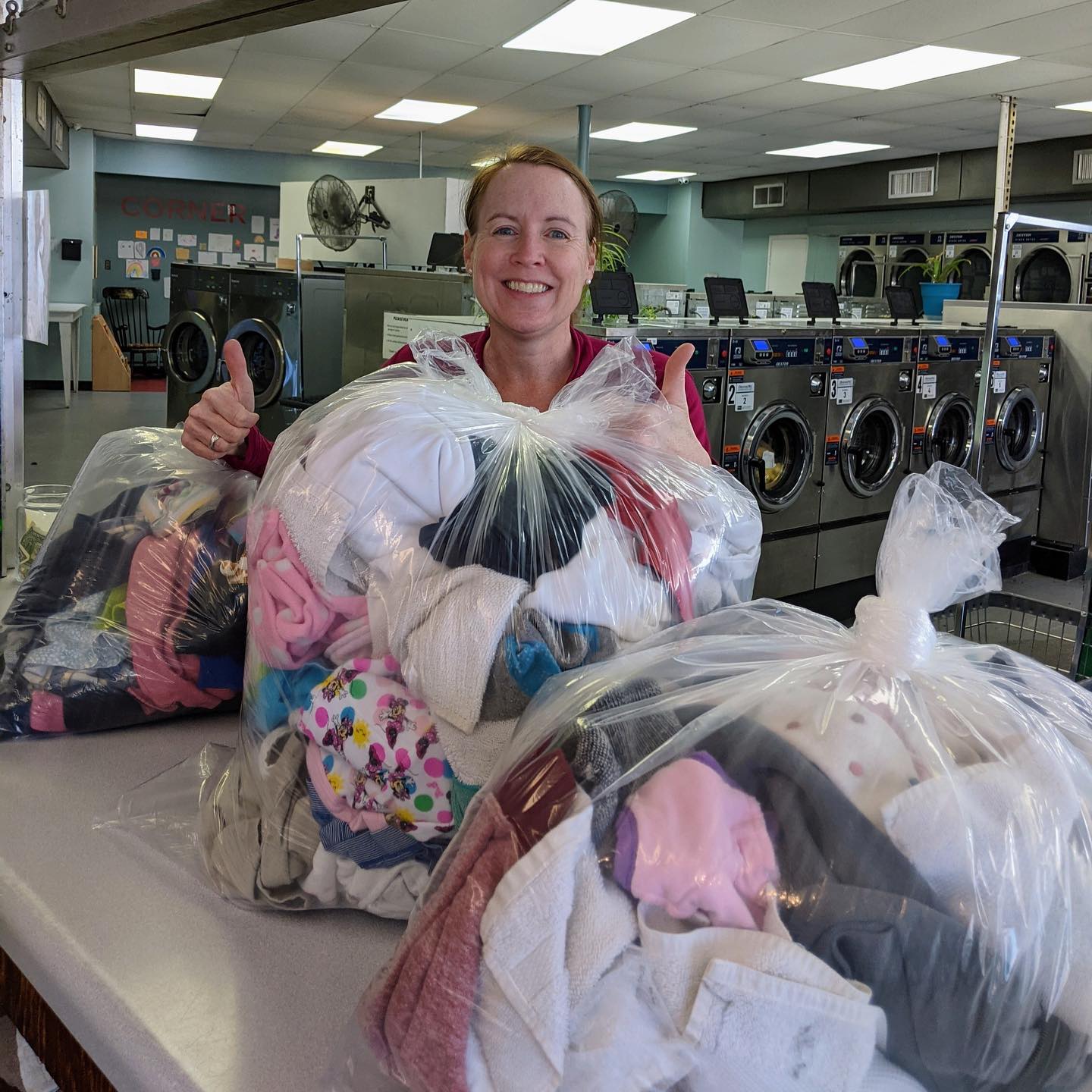
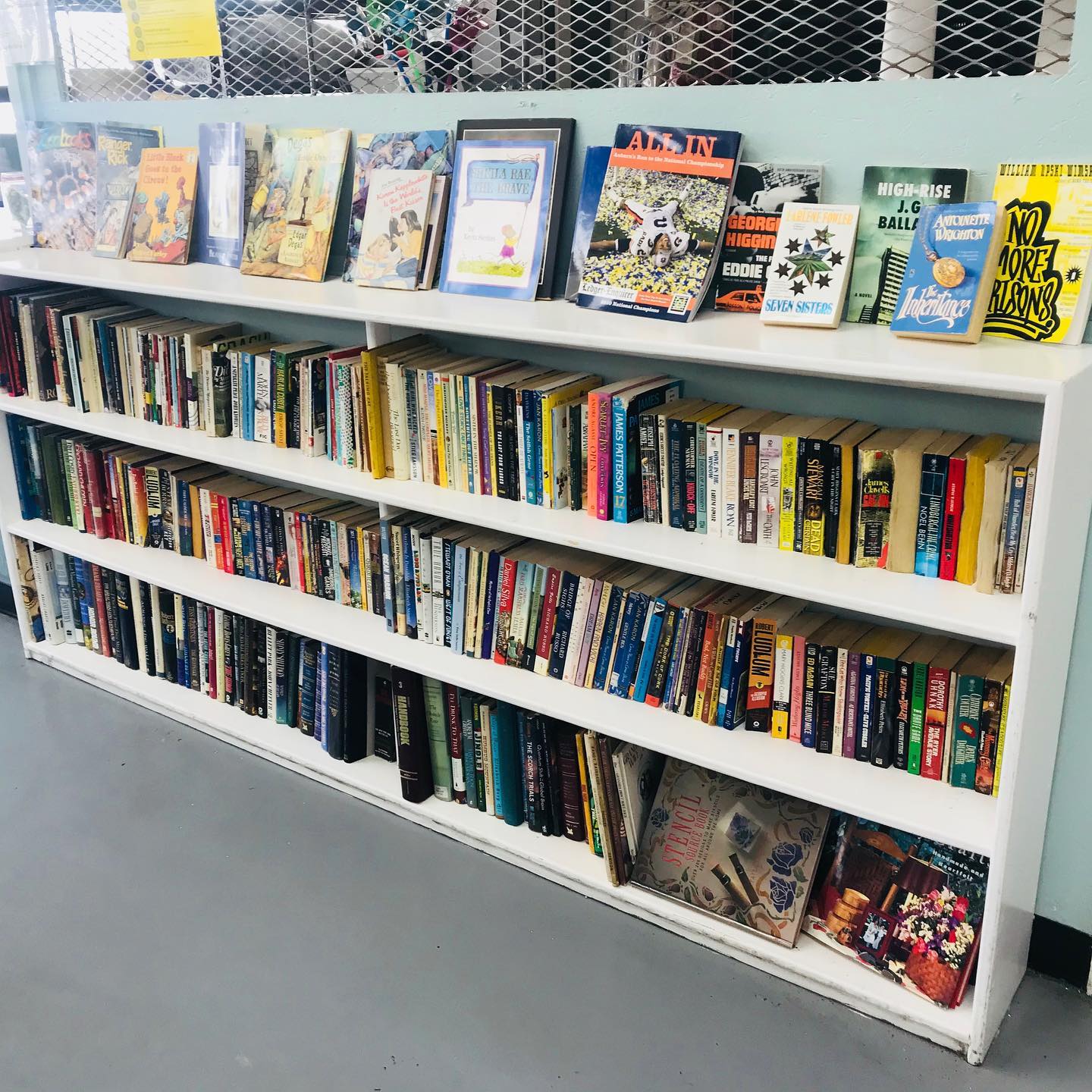
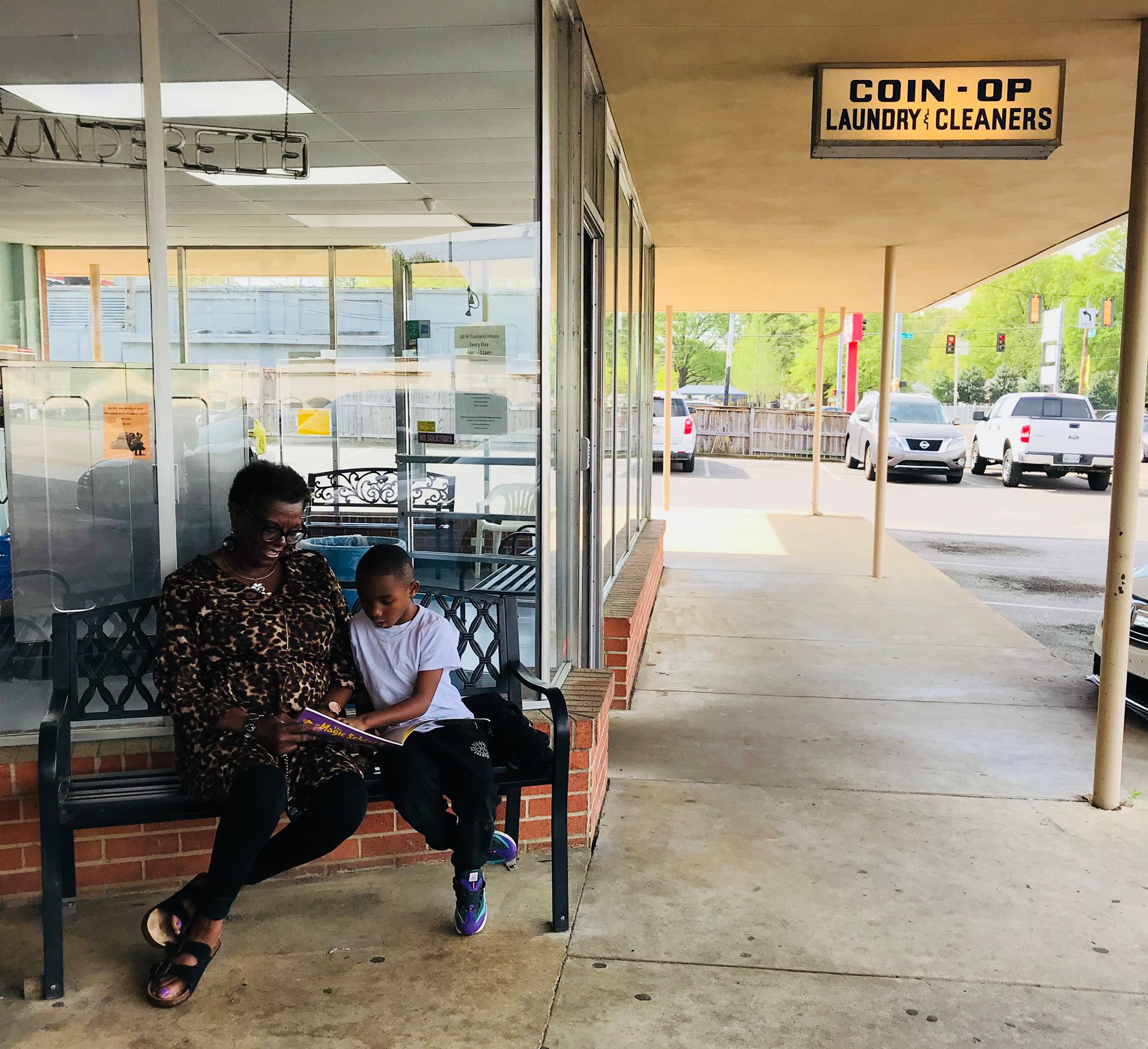
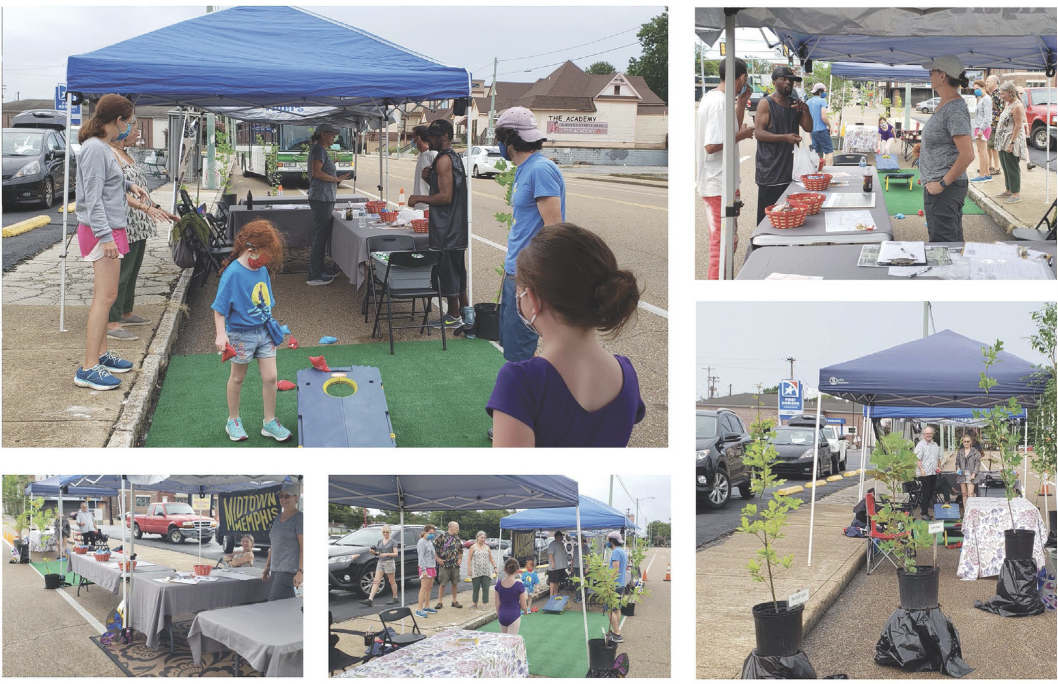
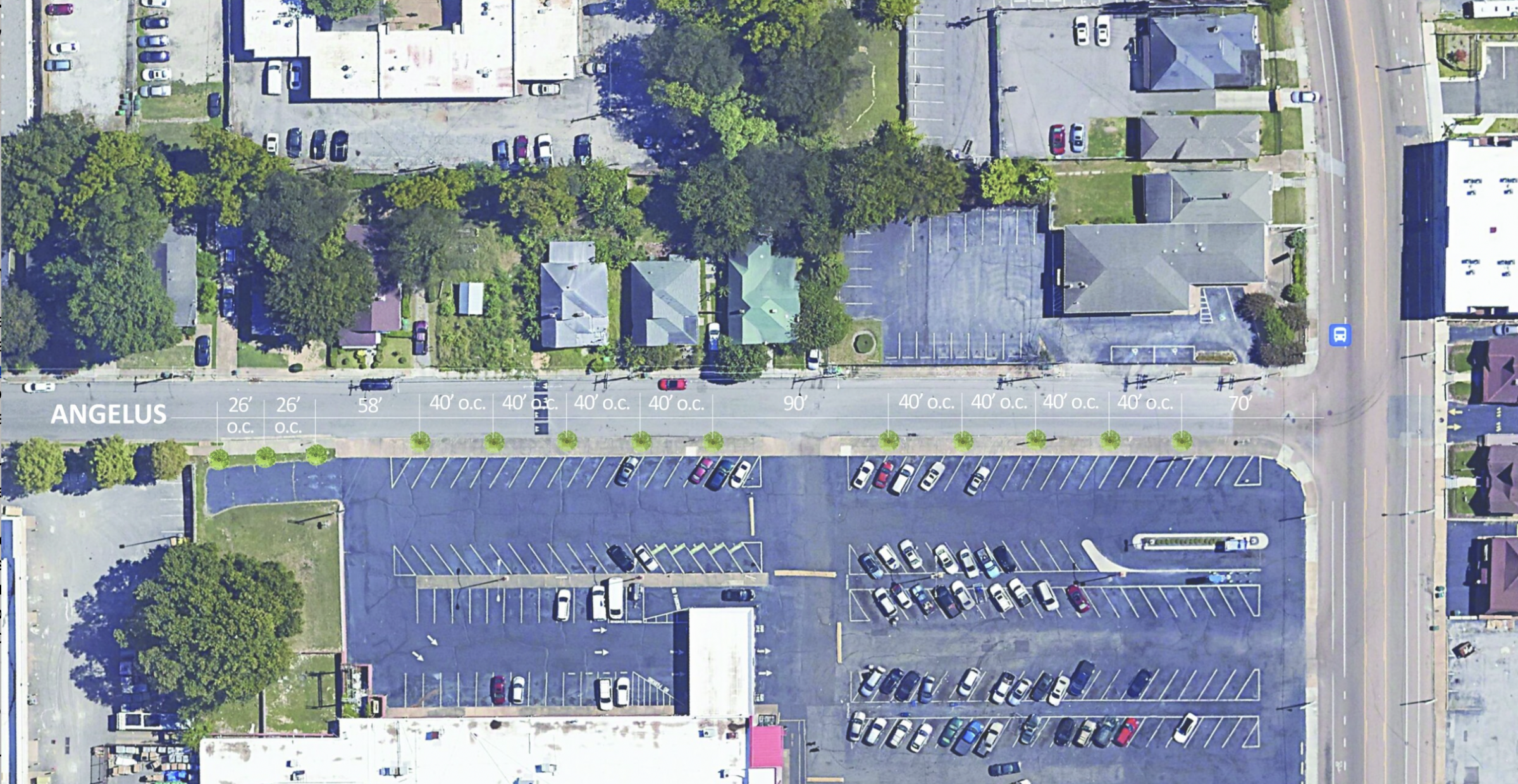
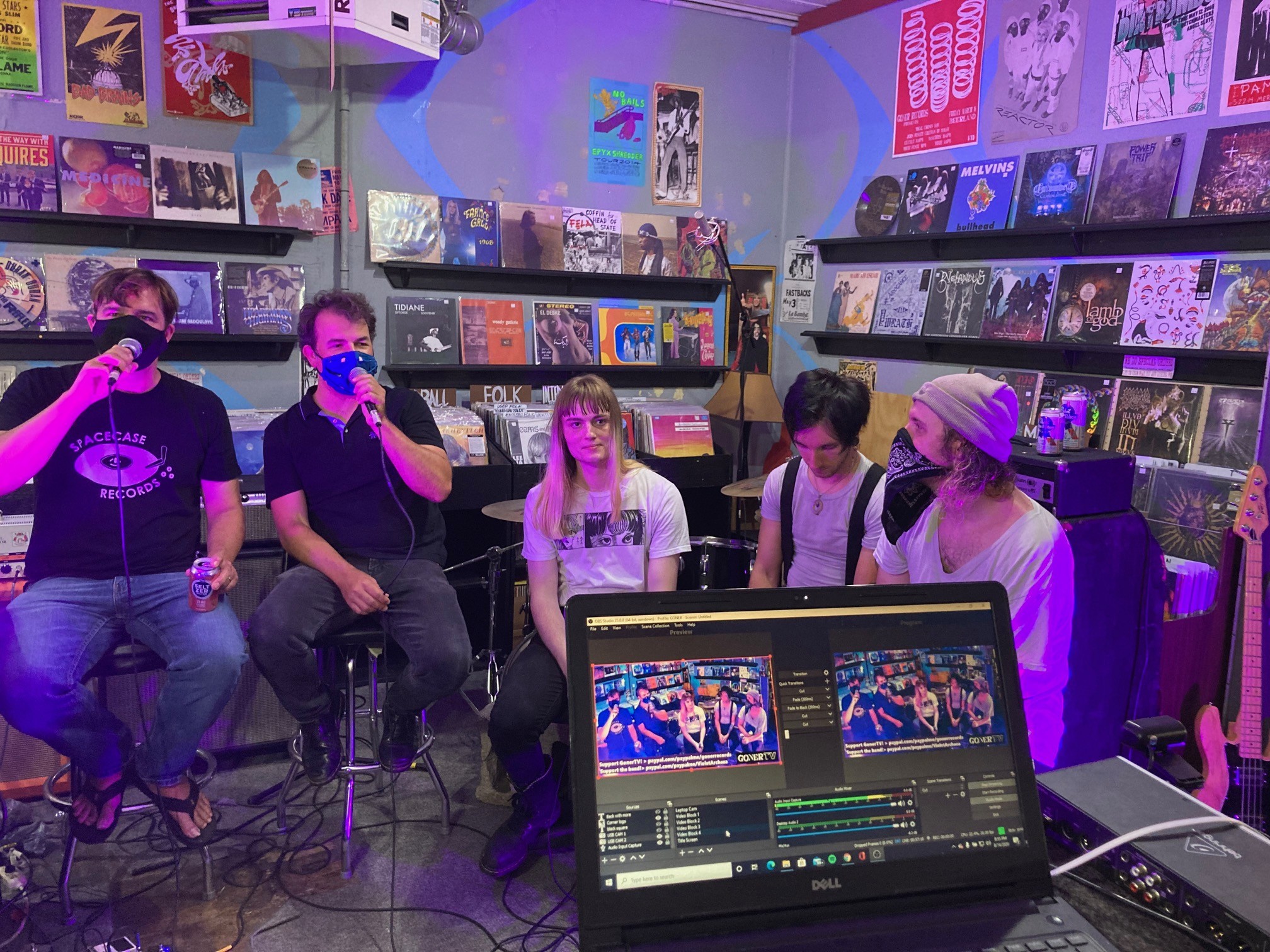
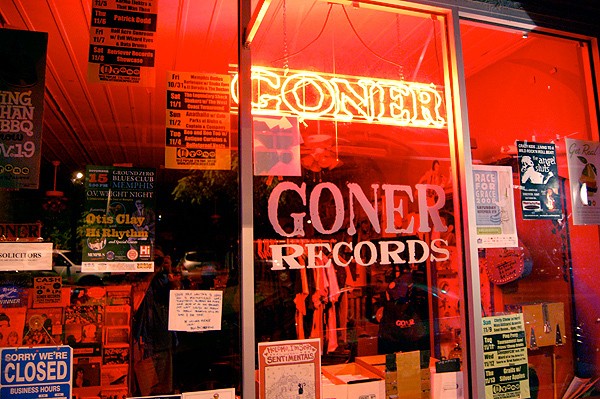
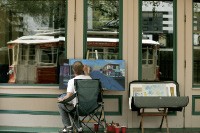 Courtesy of Center City Commission
Courtesy of Center City Commission  Courtesy of Memphis Farmers Market
Courtesy of Memphis Farmers Market  Courtesy of Memphis Farmers Market
Courtesy of Memphis Farmers Market